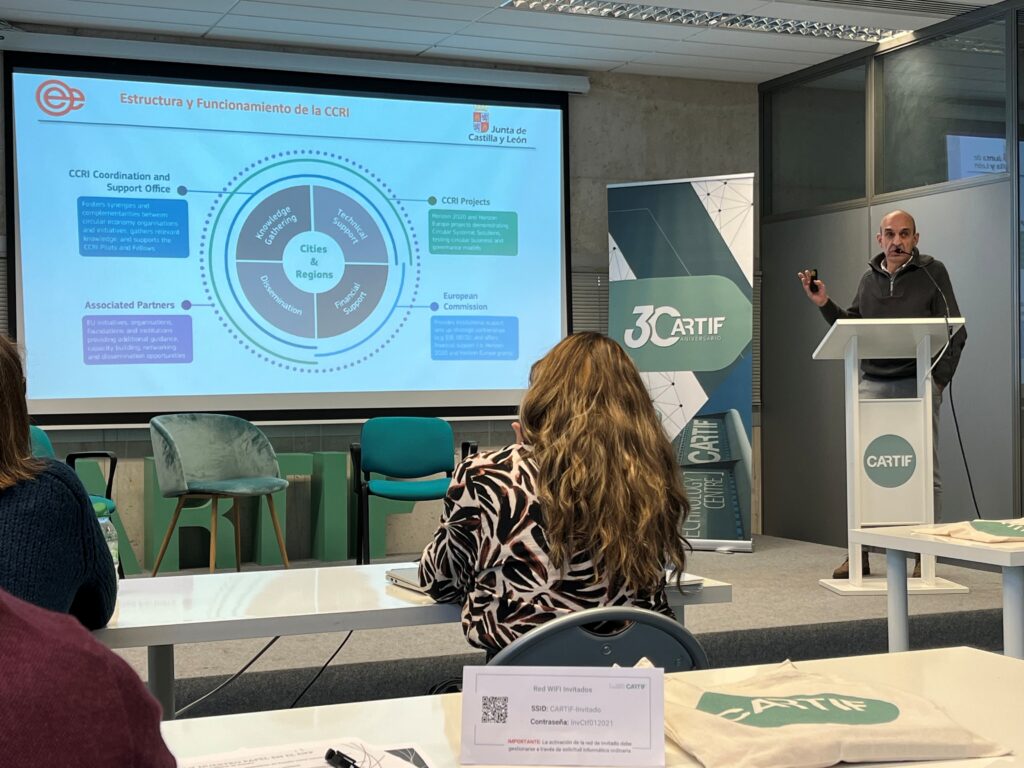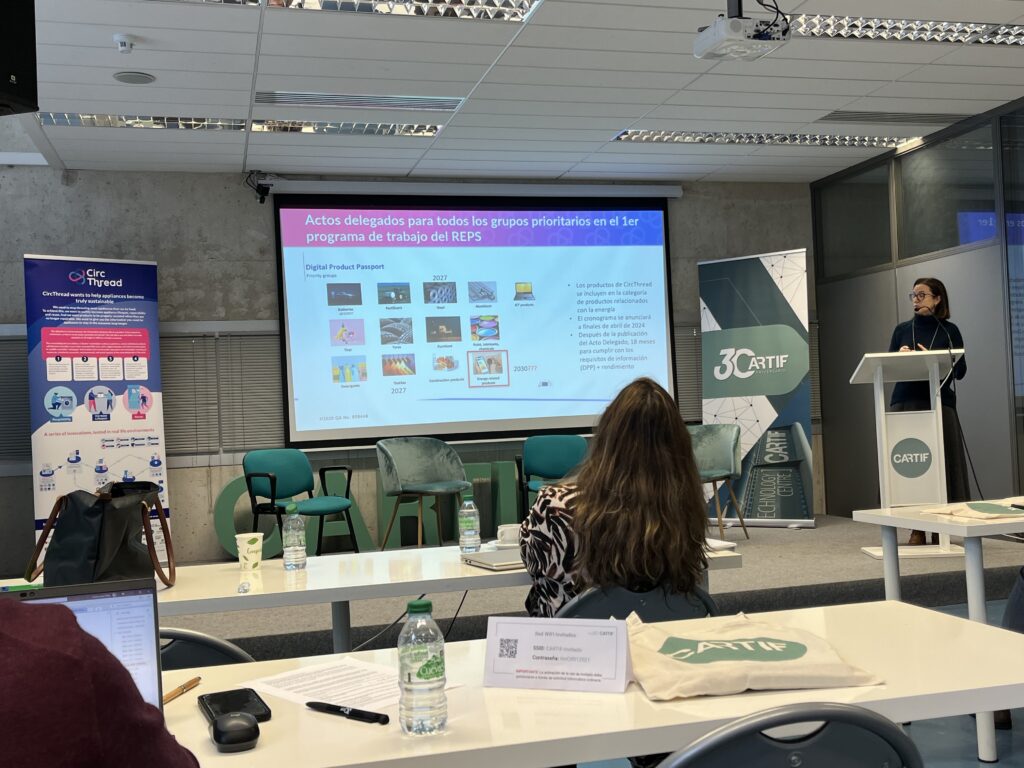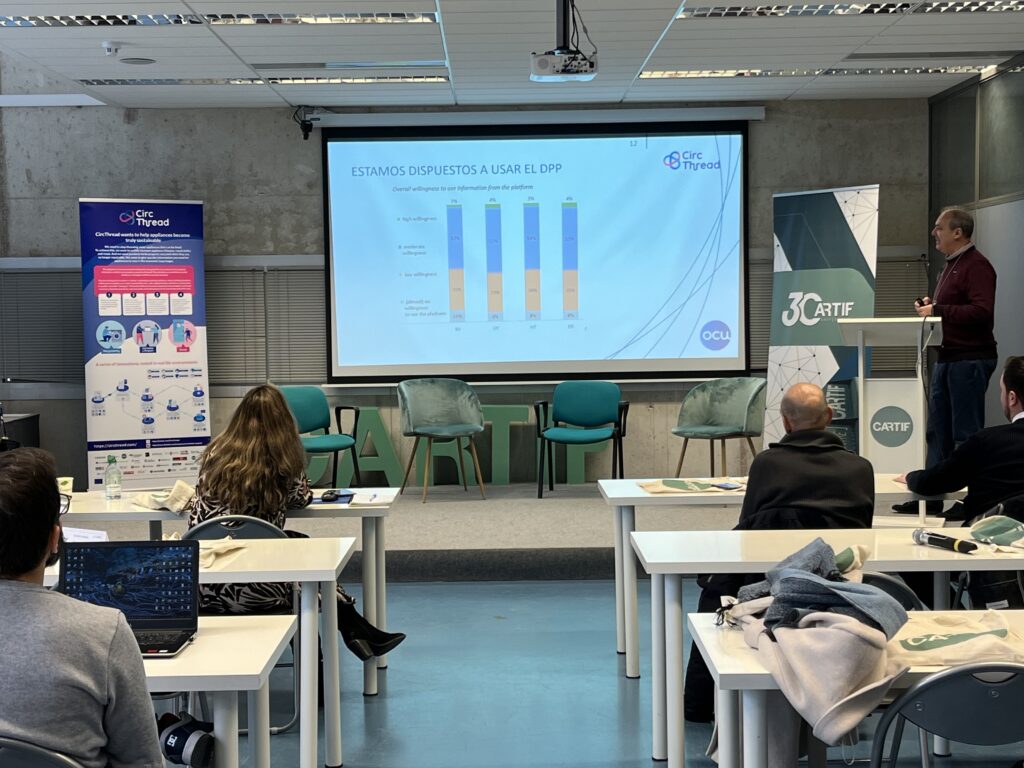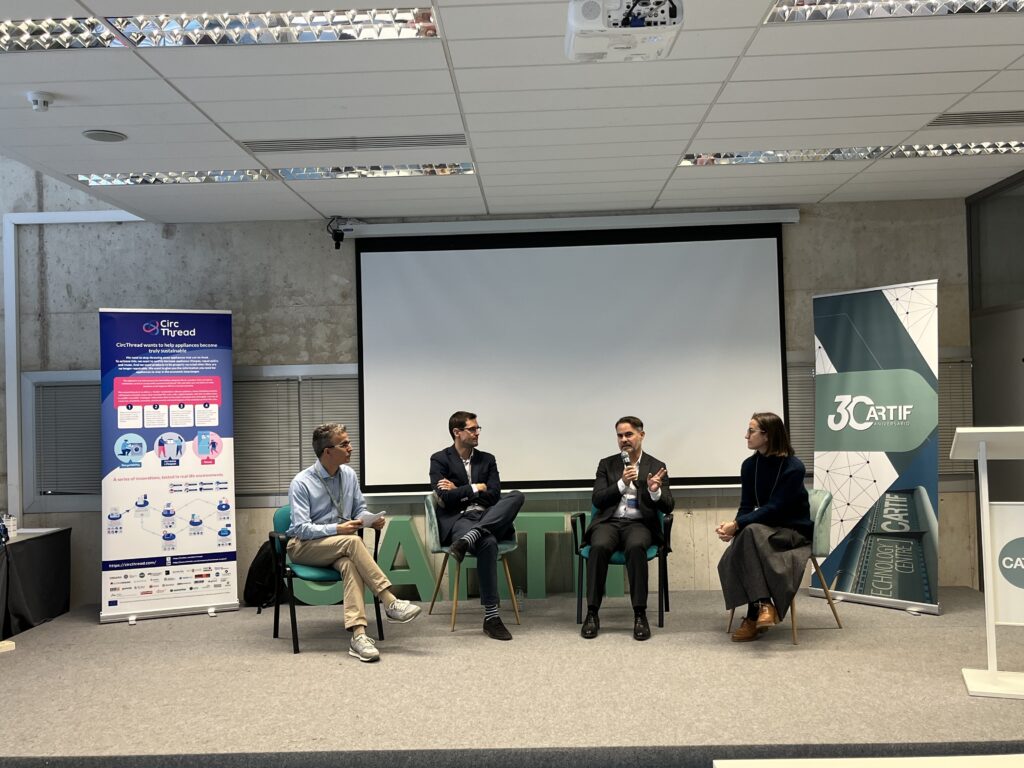On the 11th of December 2024, CARTIF hosted the workshop: “Digital Product Passport: Guide Towards a New Generation of Sustainable Companies.” The workshop aimed to introduce the Digital Product Passport (DPP) concept and explore its applications in key sectors identified by the Ecodesign for Sustainable Product Regulation—namely construction, electrical and electronic appliances, and batteries.
The session opened with an introduction to the Circular Economy Action Plan of the Castilla y León region, presented by Fundación Patrimonio Natural. Additionally, the connection with the EU Commission’s Circular Cities and Regions Initiative was highlighted, emphasizing the importance of information exchange systems to overcome barriers faced by circular systemic solutions.

The workshop continued with three thematic sessions led by WEEEForum, AEICE, and Eurecat, focusing on the role and impact of the DPP in the sectors under consideration. The discussions revolved around challenges such as complex information requirements, legislative barriers, and connections to existing and forthcoming policies. In addition, the sessions introduced examples of projects working on the DPP concept and its applications in parallel with CircThread. These included, for example, the Free4LiB project for batteries (Grant Agreement number 101069890) and the Reconmatic project for construction and demolition waste (Grant Agreement number 101058580). Both projects present valuable collaboration opportunities for CircThread, particularly from a replication perspective and for shaping the future of the Circular Intelligence Association.

The session continued with a presentation by the Spanish consumer organization OCU, which outlined the key role of consumers in the digital-circular ecosystem. As market drivers, consumers will be central to the entire DPP system, especially when accessing publicly available product and model information. Accessibility and user-friendliness were flagged as crucial to leave no one behind in the transition toward more circular business models.

The workshop concluded with a roundtable discussion where representatives from three companies—Recyclia, Placo-Saint Gobain, and WEEEForum— shared insights on the road ahead. The conversation touched on potential costs, implications for the circular economy, and the competitiveness of EU companies in the global market in the coming years. Key points highlighted during the discussion included the importance of DPP accessibility, the role of legislation, and technical aspects such as the durability of access points, data storage, and compatibility with bulk-reading devices. These issues remain open and will require further attention in the years to come. Encouraging news for innovative projects like CircThread to keep pushing forward!

Written by Fernando Burgoa, CARTIF